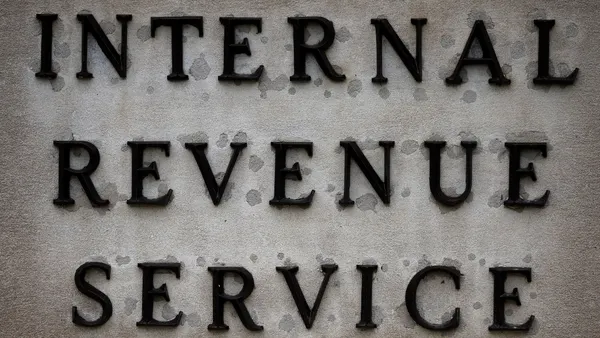Dive Brief:
- A 15% minimum global corporate tax awaiting Senate approval would demand more revenue from U.S. companies than the Treasury says while undermining the country’s competitiveness and potentially discouraging investment in the U.S., according to the 14 Republicans on the Senate Finance Committee.
- “Without evidence to the contrary, we are increasingly concerned that [the] Treasury has negotiated a deal that will harm U.S. businesses and jobs,” the senators said in a letter to Treasury Secretary Janet Yellen, primarily focusing on a so-called Pillar 2 multilateral agreement setting a floor on global corporate taxation.
- The “Pillar 2 agreement would apply to U.S. companies far more broadly and adversely than the Treasury Department has represented,” the senators said, accusing Yellen of withholding information on the tax agreement and “thwarting Congress’s constitutional tax-writing authority.”
Dive Insight:
Yellen was a driving force behind talks led by the Organization for Economic Cooperation and Development (OECD) that culminated in an agreement in October by 137 countries to overhaul global tax rules, shutting down tax havens and curtailing international tax competition.
The new tax regime will apply to companies with annual revenue exceeding 750 million euros ($850 million) and generate about $150 billion in additional annual global tax revenue, according to the OECD. The tax system will also reallocate $125 billion of profits from 100 of the world’s largest multinational companies to countries worldwide.
“Our corporations will no longer be based in the only country on earth that requires them to pay a minimum tax on their foreign earnings,” Lily Batchelder, Treasury assistant secretary for tax policy, said in a Jan. 25 speech.
“The level playing field will enhance their competitiveness relative to foreign corporations,” Batchelder said, adding that the change “has been the single most frequent international tax policy request from the U.S. multinational community.”
The House of Representatives in November approved the 15% minimum global tax as part of the Biden Administration’s Build Back Better plan. The legislation is stalled in the Senate, having failed to gain the unanimous support from Democratic lawmakers needed for passage.
Among their criticism of the global tax agreement, the Republican senators said a U.S. company operating abroad could face additional tax liability in countries that determined that U.S. tax credits and deductions had reduced its levy below the 15% minimum.
By imposing a so-called top-up tax, “foreign countries could effectively capture the benefit of congressionally-provided tax credits and deductions targeted at domestic innovation, investment and job creation,” according to the senators, led by ranking committee member Mike Crapo of Idaho.
Companies would effectively lose the benefit from several tax provisions, including the research and development credit, low-income housing credit and new markets tax credit, the senators said.
“Congress specifically enacted these provisions to encourage U.S. jobs and investment,” they said.
Under tax changes in 2017, the U.S. imposed a 10.5% minimum tax on foreign earnings of U.S. companies.
Finance ministers in the Group of 20 on Friday committed to enacting the global minimum tax next year, Reuters reported.
“There is no turning back — we need to move on,” French Finance Minister Bruno Le Maire said at the meeting.













